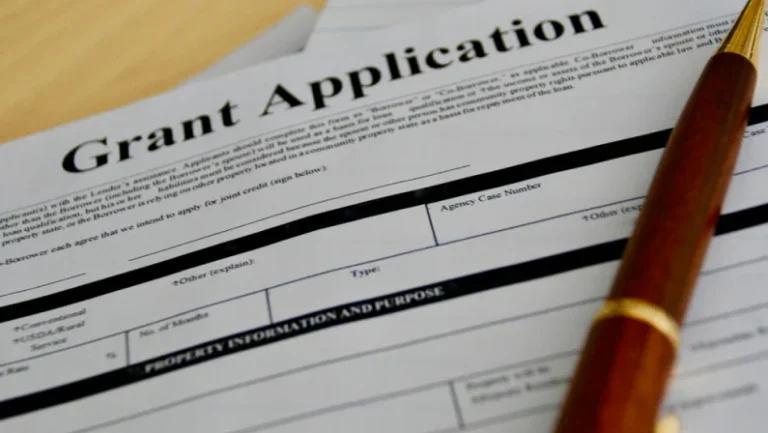Contract management in supply chain operations has evolved into a strategic priority for businesses aiming to build resilience and reduce costs while maintaining strong supplier relationships. Effective management of supplier contracts safeguards compliance, enhances operational agility, reduces disputes, and supports long-term value.
Organizations that embrace structured, technology-supported contract processes are better positioned to manage risks, align supplier performance with business goals, and improve supply chain contract optimization. As markets fluctuate and disruptions occur, having clear and well-managed contracts becomes essential for maintaining smooth operations.
What Is Contract Management in Supply Chain Operations?
Contract management in supply chain operations involves the systematic handling of contracts with suppliers and partners, covering the creation, execution, monitoring, and renewal stages. This discipline ensures that agreements align with procurement goals while managing obligations, timelines, and supplier performance.
A structured approach to contract lifecycle management in logistics helps businesses reduce disputes and maintain transparency throughout the supply chain.
Why Is Contract Management Critical for Supply Chain Success?
Clear, enforceable contracts set expectations between suppliers and buyers, reducing misunderstandings and potential conflicts. Effective contract management strategies provide a framework for cost control, timely deliveries, and quality assurance, which are essential in maintaining uninterrupted supply chain operations. By establishing clear terms and conditions, businesses can improve trust while minimizing legal risks.
How Does Effective Contract Management Reduce Supply Chain Risks?
Supply chain risk management through contracts plays a pivotal role in minimizing exposure to supplier failures, quality issues, and delivery delays. Contracts can include clear penalty clauses, performance metrics, and dispute resolution terms, ensuring accountability across the supply chain. By actively managing these elements, companies can identify vulnerabilities early and address potential risks proactively.
What Impact Does Good Contract Management Have on Supplier Relationships?

Good contract management fosters transparent, mutually beneficial supplier relationships by setting clear expectations and communication channels. It allows for smoother negotiations, faster conflict resolution, and alignment of supplier performance with company objectives. This approach encourages collaboration, leading to long-term supplier partnerships that contribute to supply chain stability.
Which Tools and Processes Improve Contract Management?
Optimizing contract management in supply chain operations requires the right mix of technology and standardized processes. These tools streamline approvals, track performance, and ensure compliance, enabling efficient supply chain contract optimization.
Contract management software
Contract management software automates document storage, approval workflows, and compliance checks while providing a centralized platform for managing agreements. It helps teams monitor contract milestones, renewals, and expirations, reducing the risk of missed obligations.
Standardized templates and clauses
Using standardized templates and clauses helps ensure consistency across all supplier agreements. This approach reduces legal review time and simplifies negotiations while minimizing the potential for disputes.
Automated approval workflows
Automated approval workflows accelerate the contract approval process, reducing bottlenecks and manual follow-ups. This ensures contracts are executed promptly, supporting operational timelines and reducing delays.
Performance tracking dashboards
Performance tracking dashboards allow procurement teams to monitor supplier performance against key contractual metrics. This transparency supports informed decision-making and highlights areas for improvement within supplier relationships.
Compliance monitoring tools
Compliance monitoring tools help ensure suppliers adhere to contractual terms and regulatory requirements. This reduces legal risks and strengthens overall supply chain governance.
How Can Contract Management Support Cost Control?

Effective contract management strategies drive cost control by minimizing leakage from untracked obligations, ensuring accurate pricing adherence, and preventing unnecessary expenses.
Automated systems support negotiation tracking, volume discounts, and rebate monitoring, enabling companies to capture all potential savings. By actively managing the contract lifecycle, businesses can gain visibility into spending and reduce hidden costs.
What Are Its Long-Term Benefits To Supply Chain Resilience?
Contract management in supply chain operations supports resilience by reinforcing operational stability and preparedness.
Stronger supplier diversification
Well-managed contracts enable businesses to diversify their supplier base while maintaining clear expectations with each partner, thereby reducing dependency on single suppliers and enhancing resilience during market fluctuations.
Improved sustainability practices
Including sustainability clauses in contracts encourages suppliers to align with environmental and social responsibility goals. This strengthens the organization’s commitment to sustainable practices across its supply chain.
Better risk mitigation strategies
Contracts can define risk-sharing arrangements, insurance requirements, and contingency plans, enhancing supply chain risk management through contracts. These measures provide clarity during disruptions and reduce financial exposure.
Enhanced agility during disruptions
Clear contractual terms support quicker decision-making and supplier collaboration during disruptions. This agility allows businesses to pivot effectively when unexpected challenges arise.
Long-term cost efficiency
Contract lifecycle management in logistics improves cost efficiency by maintaining competitive pricing and tracking supplier performance over time. This reduces the likelihood of cost overruns and supports consistent savings.
How Can Companies Strengthen Their Contract Management Capabilities?

Building robust contract management capabilities requires a combination of people, processes, and technology. Companies must align their contract management practices with their supply chain strategy to drive operational and financial benefits.
Train procurement and legal teams
Providing targeted training to procurement and legal teams builds their expertise in contract negotiation, compliance, and risk management. This ensures teams can manage supplier agreements effectively.
Implement contract management software
Contract management software centralizes contract storage, automates processes, and provides analytics for informed decision-making. It supports effective contract management strategies by enhancing visibility and control.
Standardize contract templates and workflows
Using standardized templates and clear workflows improves efficiency and consistency in contract creation and approval. This reduces negotiation time and administrative complexity.
Align contracts with supply chain strategy
Contracts should reflect the broader supply chain strategy, focusing on goals such as cost control, resilience, and sustainability. This alignment ensures supplier agreements support business objectives.
Schedule regular contract reviews and updates
Regularly reviewing and updating contracts ensures they remain aligned with current market conditions and business needs. This practice minimizes risks while capturing new opportunities for value.
Building Resilient Supply Chains Through Effective Contract Management
Contract management in supply chain operations is a strategic lever for driving resilience, cost control, and risk reduction. From enabling supply chain contract optimization to implementing effective contract management strategies, organizations can build stronger supplier relationships and navigate disruptions with confidence. By embracing technology and aligning contracts with supply chain goals, companies secure long-term value and stability.
LSI, a supply chain consultant, specializes in helping organizations transform their contract lifecycle management in logistics while enhancing supply chain risk management through contracts. By partnering with LSI, your business can capture the benefits of automated contract management in supply chain operations while reducing costs and improving resilience. Contact us today!




